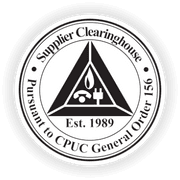By Kelly Watson
Not “knowing how to act around women anymore” in response to #metoo could set men back as much as women.
I heard a man recently say he “didn’t know how to act around women at work anymore,” in response to #metoo. It seems to have become a common refrain, coupled with shrugs and hands thrown in the air. Others have said they fear mentoring women or meeting with them one on one. Mike Pence has notoriously said he won’t have dinner alone with “any woman but his wife.” But that doctrine poses some real problems for male leaders.
The career consequences of this for women are obvious: lack of mentorship and being held at arms length serves as yet another barrier to women’s ability to penetrate the inner circle of top leadership in an organization. But perhaps less well understood are the serious consequences for men who want to lead in the 21st century.
The workforce is quickly diversifying and organizations are increasingly focused on promoting fairer representation of women and minorities to leadership. Today’s managers need to have a new set of skills: They need to be able to include and leverage these diverse perspectives for better team performance. Leaders who can’t hire, retain, and engage diverse colleagues will be replaced by those who can. Plenty of today’s bosses are good at influencing people who are exactly like them – but really, big deal. This is no longer a differentiating (or useful) skill. In our upcoming book, coming Jan 2020, we talk about the new competencies leaders will need to manage diverse teams. Innovators are already leading the way….and they don’t have any question about how to act around professional women or fear that their interactions will get them in trouble.
So where does this discomfort or fear come from? We have found there are three main areas that men are trying to manage:
- Fear of misunderstood intentions,
- Fear of what others will think and
- Fear of a false harassment claim.
In our work we teach leaders to identify their flawed assumptions and REFRAME. Let’s look at a mentoring situation through that lens. What are the flawed assumptions at work here?
Flawed assumption #1: If I mentor my female colleague closely, she will misunderstand my intentions.
In our experience working with thousands of women and men over the years, we have found that women rarely misunderstand the intentions of their male colleagues. The problem is, the intentions are not always to develop them, mentor, or promote their interests professionally and without expectation of something in return. Trust us, there is generally no misunderstanding. Behaviors such as a firm and full handshake, eye contact, and containing conversations to the business at hand, rather than her looks or marital status, will deliver a clear intention of respect. When men treat female colleagues like sisters, for example, instead of potential dates, they can build trust and eliminate misunderstanding fairly quickly.
REFRAME – If I mentor my female colleague professionally, she will most likely understand my intentions clearly.
Flawed assumption #2: If I mentor my female colleague closely, others will think we are having an affair.
Let’s face it – the only people who think something is going on whenever a man and woman work closely together are other people who also don’t have professional experience working with the opposite sex. The solution is not to avoid mentoring women, it’s to broaden the list of skilled mentors so more men can gain experience mentoring women. Having a formal program, with accountability and oversight, can help ensure everyone knows that cross-gender mentoring is expected of everyone.
REFRAME – I can model behaving professionally with women and this will help mentor others to learn this skill as well.
Flawed assumption #3: If I mentor my female colleague closely, she will accuse me of harassment or assault.
This is the grand pubah of fears for men since women started sharing their harassment experiences and realizing other women were having them, too. What if it goes too far? What if she misinterprets mentorship for assault? What if I increase her power and she uses it against me? Well, here is the truth about false harassment claims: They very rarely happen. And it is even more rare that the claim makes it to a courtroom or ends in a wrongful conviction. Women know this. In fact, even with #metoo, the majority of true claims go unpunished. And filing claims is usually a career-ender for the woman, even if she manages to get justice. False claims simply don’t get professional women anything.
REFRAME – When I invest my efforts in mentoring women professionally, they have the potential to become powerful lifelong allies.
Underneath all of these assumptions is a bigger, darker one that we probably should also verbalize out loud so it can be examined logically. The Pence Doctrine – don’t be alone with women at all – is founded on a pretty low view of both men and women. It assumes that men are unable to control themselves from hitting on or assaulting women and that women are just waiting for an opportunity to trap men into a false claim. Clearly, taking precautions to avoid predators is something everyone needs to do, (not just women), but assuming everyone is a predator is a pretty limiting way to lead. And with more skills and gender diversity experience, leaders will get better at identifying professionals from actual predators.
The simple solution is: don’t flirt with, objectify, or assault women at work. Here are some common FAQs for men on this topic:
Can I compliment a woman’s looks?
There is a difference between saying, “This team looks sharp and ready to rock this presentation,” and “wow, Shelley, you look hot in that dress.” One says we are equals, the other says she is a sex object, not a peer. Even noticing her outfit out loud can be problematic: On a recent panel, the moderator complimented every speaker on some aspect of their resume except for the lone woman, ironically the most senior speaker on the panel, for whom the moderator complimented her on her shoes. The tone he set was that the men were professionals and the woman was window dressing. This is not a good way for a leader of tomorrow to demonstrate respect for a colleague.
Can I touch her or give her a hug?
Again, there is a difference between a supportive arm around the shoulder and a lingering full frontal squeeze. Or between a firm, professional handshake and one that holds on too long and is accompanied by deep smoldering eye contact. (It happens more than you think!) But if you are not sure, or if you notice she seems uncomfortable, then it is a good idea to avoid violating her personal space.
Can I ask about her personal life?
Not if it is to find out if she is married or dating anyone. She can tell the difference between a question asked about the previous weekend’s activities to everyone on the team and a personal question targeted at her to fish for a possible opening.
Can I have dinner with her or close the door for our one on one meeting?
Yes, as long as you keep the conversation about work and your hands to yourself. Would you have dinner with your mother or sister? Of course you would! Treat your work colleague the same way.
Can I tell a sexist joke?
Listen, telling a joke that stereotypes any group says more about you than anything else. Everyone listening – even those who laugh – get that you have limited to no experience with that group outside of highly stereotypical, negative interactions. It demonstrates you are not really fit to lead a diverse team.
What if she seems to like it?
Sometimes women fear backlash for expressing that behavior has crossed a line, so instead they may try to avoid situations of contact and/or giggle nervously when it happens. Don’t ignore these signs. They do not mean that she is ok with it!
As leaders build their gender diversity leadership skills, it is helpful to encourage having direct conversations. Creating a safe space for honest discussion may surface tensions and allow for more clarity. We have developed a highly effective technique for ensuring clear communication – it is something we call “Direct Speak.” Using direct speak, we encourage people to describe, without blame, something they observe that concerns them, articulate how they interpret the underlying intent, and ask for the change they desire. This model might be helpful for addressing some of the above situations because it allows team members to clarify intent and clear up misunderstandings.
Not knowing how to navigate #metoo signals a lack of professional experience and a leadership skills deficit that should not go unnoticed by forward-thinking organizations or leaders. Instead of throwing hands in the air, or avoiding discussion of these situations, this should be seen as an opportunity to upgrade and improve. What is required is more experience working with professional women – not less – and some critical leadership skills development. Women leaders are here to stay and the real fear should be for anyone unable to work with them professionally.
Learn the 21st century competencies of managing and leading with our Inclusive Leadership Training. Leaders will be better equipped to help team members realize their potential, think more strategically and better manage difference. Contact Us to learn more.
Contact Us




